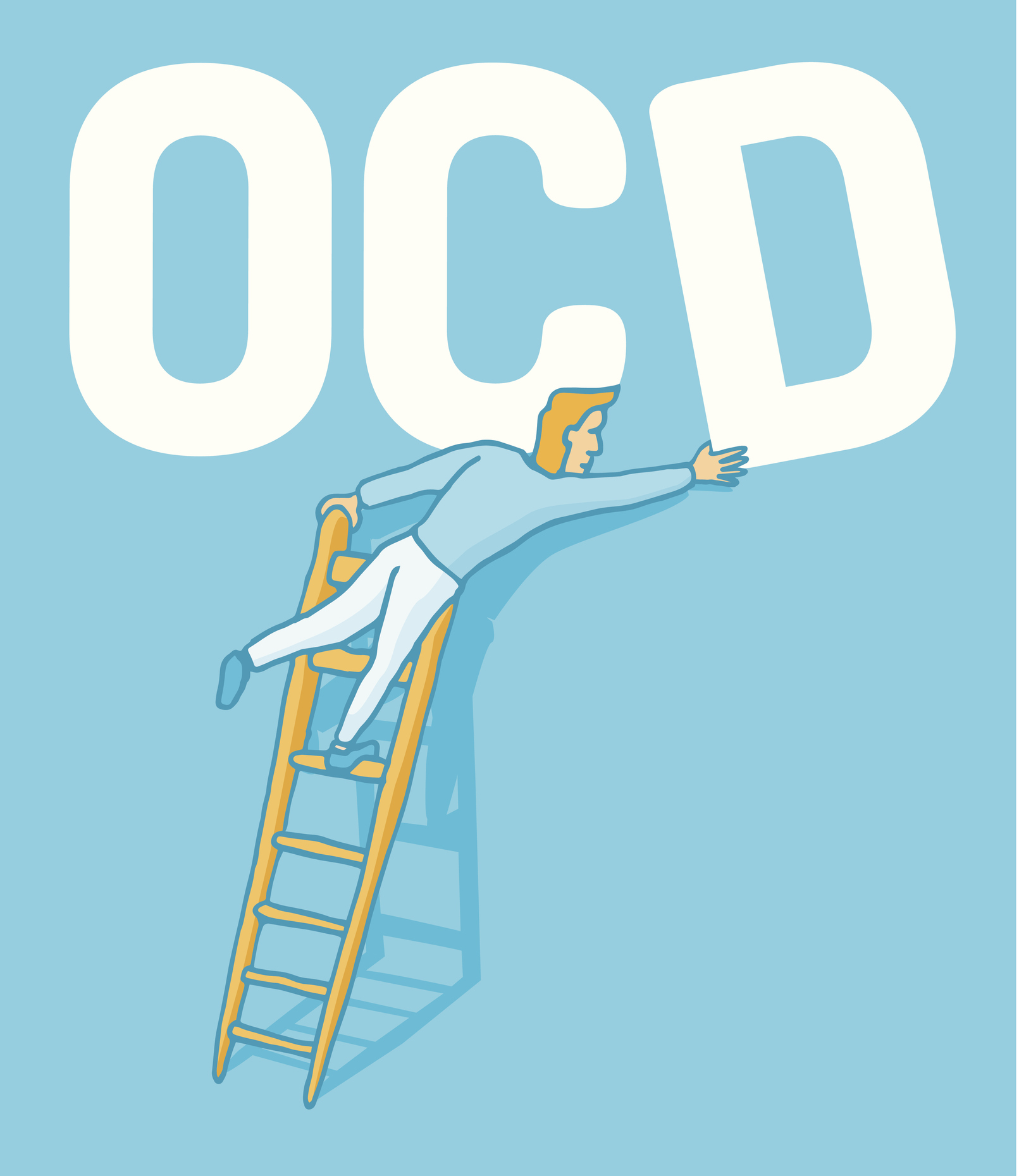Have you ever thought a person is very rigid, clean or overly specific about things being placed correctly, and may have caught yourself automatically saying, “you’re so OCD!”? This is something that has become a common term in describing people who do things differently or in a more structured specific way to others. However, OCD is not an adjective, but a mental illness that is quite debilitating to live with. During international OCD Awareness Week (October 13-19, 2019) we try to raise awareness and understanding about OCD and related disorders, with the goal of breaking the stigma and helping more people get access to evidence-based treatment and resources.
What is OCD?
Obsessive Compulsive Disorder (OCD) is an anxiety disorder where people have recurring, unwanted thoughts, ideas or sensations (obsessions) that make them feel driven to do something repetitively (compulsions). These thoughts are uncomfortable and cause distress, and the compulsions that come with it to decrease these obsessions are time consuming and tiring.
Ever had the feeling that you have left the oven on and go back to check? or the pencils on your desk are not lined up how you would like them to? or have a thought you believe to be inppropaite? Well, this is quite normal, and most of us experience such things, it’s when it becomes constant and distressing - when it becomes obsessive, it becomes a problem. People with OCD may constantly doubt every decision they make, or become so worried about contamination that even cleaning their hands doesn’t help anymore, and may believe that if they don’t perform a certain behaviour (eg; ritual) what they think will come true!. Around 3 per cent of people in Australia experience OCD symptoms of obsessions and compulsions in their lifetime.
An obsession is a recurring and unwanted intrusive thought that is experienced as highly distressing. A compulsion is a repetitive behaviour that a person feels driven to perform in order to reduce distress and/or prevent a feared outcome related to an obsession. In many cases, people suffering from OCD are aware that obsessions and compulsions are not rational or are excessive, however, they feel they have little to no control over obsessions and find it very difficult to resist compulsions.
What are obsessions?
Obsessions are types of thoughts, mental images, and urges that are unwanted and distressing. These thoughts, images, and urges are called obsessions simply due to their recurrent nature. You might also hear the term "intrusive thought" being used when referring to OCD. This is because intrusive thoughts often become obsessive for people with OCD. Intrusive thoughts are actually quite common and are experienced by everyone - even people without OCD. Intrusive thoughts are random, automatic, unwanted thoughts that just "pop" into our mind without any effort whatsoever when we're exposed to triggering stimuli. People with OCD are usually unable to tolerate the content of the intrusive thought, which then leads to obsessional thinking (i.e., worry and rumination). On the other hand, people without OCD will feel uncomfortable when experiencing an intrusive thought, but can usually tolerate that discomfort and let go of the thought. Examples of obsessions and intrusive thoughts include doubt over routine activities, contamination, harm, sexuality and sex, relationships, order and symmetry, scrupulosity, health, superstition, and saving and loss, just to name a few.
What are compulsions?
Compulsions are characterised as repetitive behaviours or mental actions performed to reduce the distress and discomfort felt after experiencing intrusive thoughts and obsessions. Compulsions can be both overt (i.e., observable), and covert (i.e., hidden). Examples of overt compulsions include behaviours such as checking appliances, unnecessarily explaining your behaviour to others to avoid being seen as a bad person, washing, ordering, re-writing, re-arranging, and repeating actions (e.g., tapping). Examples of covert compulsions include thought blocking and avoidance, scanning and re-tracing steps in your mind, singing songs, counting, excessively using self-coping statements, etc. The important thing to note about compulsions is that while performing them provides relief in the short-term, they serve to maintain anxiety and discomfort in the long-run. This is because compulsions falsely re-inforce the importance of obsessions and create a false sense of security.
What is the cause of OCD and who gets it?
Although the exact causes of OCD are not fully understood, it seems likely that there is no single cause of OCD. Rather, research suggests it is probably a result of the interactions between genes, beliefs, personality factors, and environments. OCD can occur at any life stage. Young children may have symptoms, but may not be diagnosed as OCD, although symptoms usually develop fully for the first time in adolescence.
How is OCD treated?
The current gold standard for psychological treatment for OCD is Exposure and Response Prevention (ERP). This form of treatment when augmented with mindfulness based approaches such as those from Acceptance and Commitment Therapy can enhance the efficacy of it. In addition to this, Virtual Reality Therapy has also been shown to be effective for OCD treatment since it can enhance the techniques taught as part of ERP. For some people with OCD, psychological therapy alone does not produce desired results so pharmacological intervention is considered via a referral to a Psychiatrist. This means that the medication prescribed can act as a “leg-up” to help people engage in ERP more readily.
Our team at Melbourne Wellbeing Group thrives on promoting the mental health and wellbeing of people of all ages. If you or a loved one are struggling with OCD, give us a call to make an appointment with one of our team of Psychologists

